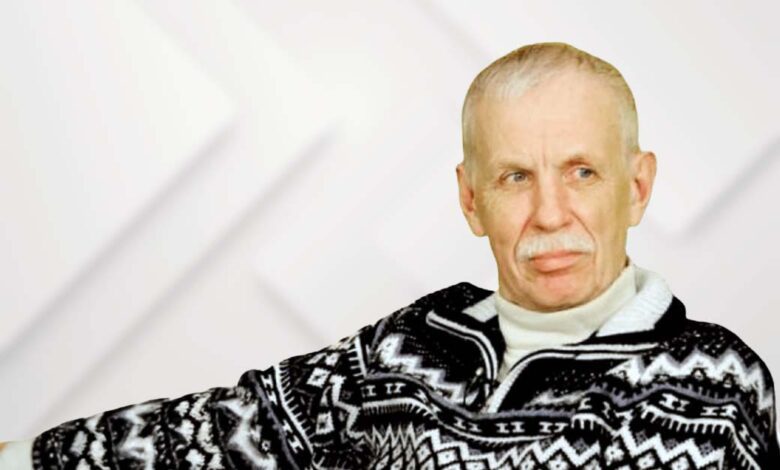Obscene language as a threat to the formation of national culture: Yevhen Yakunov

Recently, obscene language in Ukraine is increasingly ceasing to be a marginal phenomenon and becoming a public tool at rallies, in social networks, and in the statements of public figures. It penetrates the speeches and statements of politicians, forms the emotional framework of protests, becomes a marker of involvement with the “real” people or with the frontline reality. Such an expansion of the sphere of what is permissible in speech is perceived as liberation from taboos and manifestations of sincerity. However, at the same time, it questions the boundary between personal and public, between intimate emotionality and normative public space. In this context, the discussion about swearing ceases to be secondary — it concerns the language in which Ukrainian culture is built in the conditions of crisis and transformation.
In the development of this topic, the honored journalist of Ukraine, Yevhen Yakunov considers obscene vocabulary is not a linguistic category, but an indicator of the state of national culture, the idea of elitism and the historical processes of the formation of Ukrainian statehood. He believes that public swearing, which today has gained new popularity and even a certain status as a symbol of resistance, is actually a sign of the erosion of the cultural basis without which a modern nation cannot survive. The use of “matyuks” is not only a matter of style or emotional expressiveness, but a symptom of a deeper cultural shift that carries risks for the very idea of a national modern community.
Evgeny Yakunov notes that the modern tendency is to label people who do not use obscene language as adherents of a totalitarian approach or moral retrogrades. Even a basic admission that a person has never been a motherfucker causes aggression in a part of the public, which perceives swearing as a manifestation of “authenticity” or protest. The journalist draws attention to the attempts of some political and cultural circles to make the public matyuk a symbol of resistance and an attribute of a patriot.
In this context, Yakunov emphasizes the concept of “high” and “low” culture proposed by Ernest Gellner. National culture capable of supporting the existence of a modern nation and state should be formed as a “high culture” — an analogue of a well-kept garden that needs constant attention, selection, enlightenment and standardization. Instead, “low” culture, which includes “mothers”, lives according to the principle of natural chaos: it can be alive, colorful, but does not provide a basis for a long-term state organism. And if there is no high culture in society, then the state itself becomes unnecessary, because there is nothing to support.
According to the journalist, a sign of belonging to high culture has always been the possession of the so-called “high style” of public speaking – literate, literary language, without vulgarisms. The elite differs from the plebs precisely in that they master a cultural norm that requires effort, knowledge, sophistication, even in the way a person expresses his emotions. From this point of view, the public use of “matyuk” by politicians is not a dismissal, but a surrender of one’s positions. This is a gesture of self-removal from elitist responsibility and rejection of one’s function as a cultural navigator.
“Of course, not everyone aspires to be “highly cultured”. Today it is fashionable to be “with the people” and “like the people”.
And people do not choose words. There is such a scourge on Ukrainian territory. She was not born today and is called “populism”. This is when the educated intelligentsia “mows” under the people, dressing up in coats and blowing their noses with two fingers on the floor. Lesya Ukrainka, Ivan Franko, Mykola Vasylenko, and even the young Petlyura fought against this ideology, calling for the education of a highly cultured Ukrainian elite.”, notes Yakunov.
The journalist believes that indulging in public swearing is a form of the old Ukrainian “populism” — a phenomenon when the intelligentsia tries to become “closer to the people” by artificially reproducing peasant-proletarian habits, manners, and rudeness. Historically, this populism defeated the modern European enlightened ideal in Ukrainian political life — and this, in his estimation, became one of the reasons for the loss of cultural strategy during the revolutionary events of the beginning of the 20th century.
Yakunov reminds that both the Central Rada and the government of the Ukrainian People’s Republic, despite their national ambitions, often showed suspicion of elitism, knowledge of foreign languages, classical education, and intellectual demandingness. In his opinion, this mistrust of education and, at the same time, hyperbolized admiration for “nationality” led to a cultural collapse, which was well picked up by the communist regime. Even in late Soviet times, the public use of matyuk by high-ranking officials was an element of ritual confirmation of “one’s” origin, supposedly belonging to the working class.
In the modern context, according to Yakunov, the same logic is repeated: people with an intelligent background who demonstratively use “matyuks” are allegedly trying to prove their “frontline” affiliation, “sincerity”, “authenticity”, closeness to real life conditions. However, this positioning is dangerous. It erases the boundary between the cultural and the everyday, between the responsibility of the elite and the indiscriminateness of the mass language. If according to Gellner, it is high culture that is the basis for the existence of a nation, then its dissolution in the plebeian linguistic field entails the erosion of the state structure itself.
At the same time, the journalist emphasizes that it is not about a legal ban. He is not in favor of “abolishing matyuk” as, for example, abolishing the public use of the Russian language. However, for him, on a personal level, the absence of profanity remains a marker of a cultured person.





